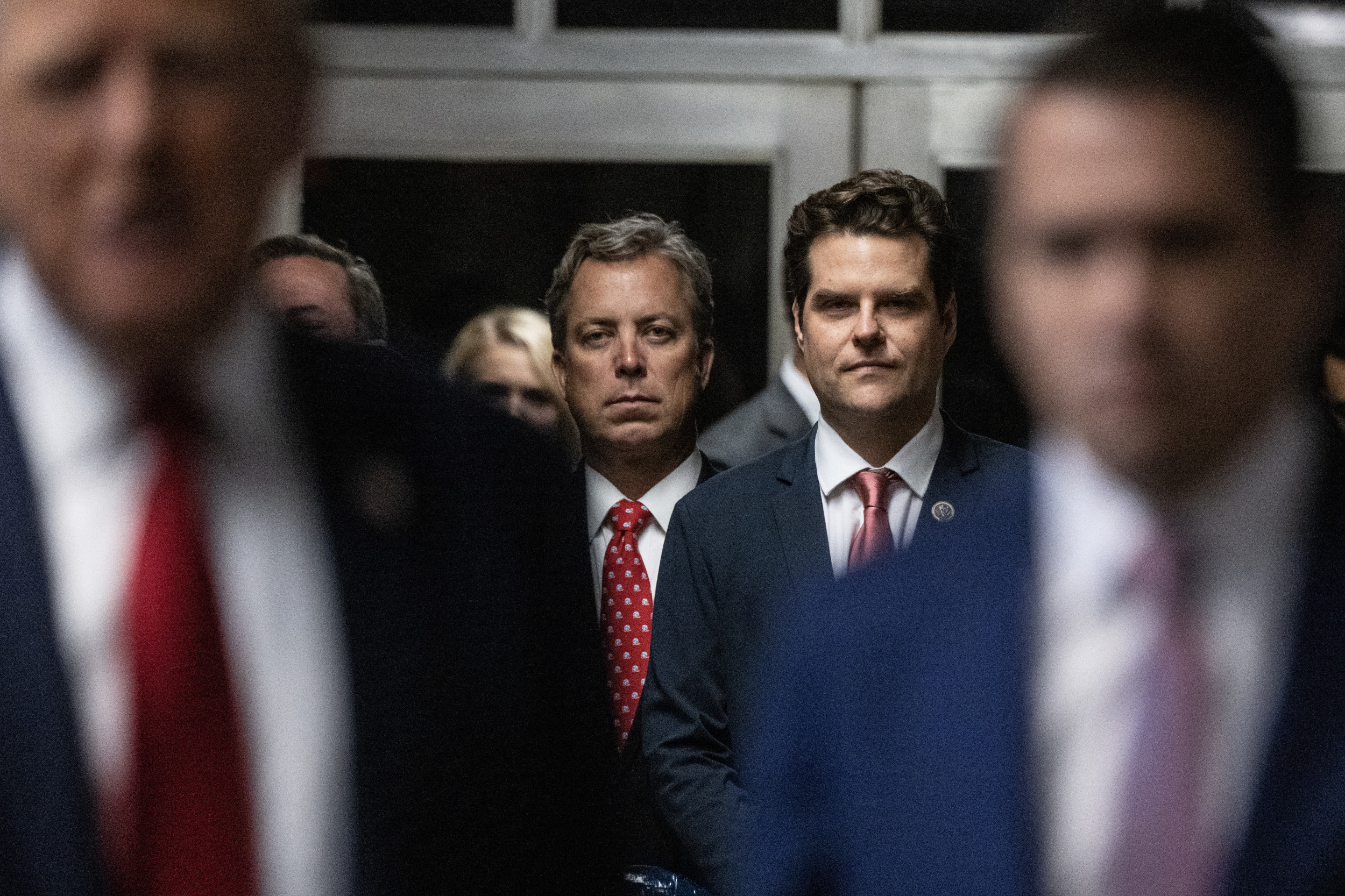On Tuesday, President Donald Trump revealed the remaining details of his much-anticipated diplomatic plan for Israel and the Palestinians, long marketed to the press as the "Deal of the Century." Trump made the announcement as the country and much of the world were glued to his impeachment trial in the Senate, and after White House meetings with Israeli Prime Minister Benjamin Netanyahu and his rival, Blue and White party leader Benny Gantz.
Let's be absolutely clear: rather than paving the way to peace between Israel and the Palestinians, Trump's grotesque farce of a plan is a gift for his close ally Netanyahu, and a blueprint for permanent Palestinian subjugation and apartheid.
According to the plan as laid out at Trump's press conference with Netanyahu, the U.S. will recognize Israeli annexation of most of the occupied Palestinian West Bank, including the Jordan Valley and Jewish-only settlements built on occupied Palestinian land in violation of international law. All of Jerusalem, including the occupied Palestinian eastern part of the city, will remain under Israeli control. And Palestinian refugees expelled from their homes by Israel will be denied their internationally recognized legal right of return. If Palestinians want to have a Swiss cheese "state" surrounded and dominated by Israel on the crumbs of land that remain after Israeli annexation, they will have four years to accept this impossible ultimatum—which bears a remarkable resemblance to the conditions Netanyahu laid out for Palestinian "statehood" in his speech at Bar Ilan University in 2009.
In the run up to the launch, we've been hearing about how the plan was being drafted by Trump's top Middle East advisor and son-in-law, Jared Kushner. But in fact, the Trump administration been implementing aspects of this supposedly new vision since soon after taking office three years ago. The initial stages included recognizing Israeli sovereignty over the Syrian Golan Heights and over Jerusalem (and moving the US embassy there,) cutting aid to Palestinian refugees and working to undermine their rights, reversing longstanding U.S. policy that deemed settlements illegal, closing the de facto Palestinian embassy in Washington, DC, and Trump's executive order targeting Palestinian students in the U.S., under the guise of fighting anti-Semitism on campus.
None of this should be surprising, given Trump's longstanding friendship with the Israeli prime minister, Kushner's close family ties to Netanyahu and the Israeli right, and the fact that all three of the plan's authors—special envoy Jason Greenblatt, U.S. ambassador to Tel Aviv David Friedman, and Kushner himself—are staunch supporters of Israel's illegal settlement enterprise. The U.S. has always been biased towards Israel, but Trump and Kushner have taken things to a new and dangerous level. Official U.S. policy on Palestine/Israel is now almost completely aligned with Israel's current far-right, racist government. In fact, in many ways Trump's plan resembles the notion of "economic peace" proposed years ago by Netanyahu, in which Palestinians are expected to give up our demands for freedom in exchange for economic inducements. Some criticized the Palestinian leadership for not engaging with Trump's team on the plan, but doing so would have been pointless, and indeed foolish. It would have given a facade of legitimacy to a negotiations process cooked up by Netanyahu and Trump that is designed to permanently subjugate Palestinians and negate our fundamental rights.
Beyond just Palestinians, many in the international community are deeply alarmed by the Trump/Kushner plan. As a precedent, it threatens to do away with the international legal system as we know it, including the idea that countries should not be allowed to acquire territory by force, replacing it with a system in which "might is right." The dangers beyond Palestine/Israel are obvious, including legitimizing Russia's illegal annexation of Crimea.
Lasting peace requires justice and valuing Palestinian lives and needs equally to those of Israelis. It means allowing Palestinians to exercise their rights, including the right to live in freedom and genuine self-determination in their homeland. And it must be rooted in fairness and international law, not what extremist Israeli leaders say is acceptable.
Twenty years ago this week marked one of the last rounds of direct Israeli-Palestinian negotiations in Taba, Egypt. I was a legal advisor to the Palestinian negotiating team at the time. When those talks ended without an agreement, Palestinians were asked by Israel and the international community to behave as though we had nearly succeeded, when reality could not have been more different. Two decades on, many in the international community still prefer to believe just about any fiction about a two-state solution—killed off by Israeli settlements years and years ago— and to remain in denial about the permanent nature of the half-century-old military rule established in the occupied territories.
The time is now for the international community to finally, at long last, acknowledge reality and to take appropriate action in the form of non-violent boycotts, divestment, and sanctions, to hold Israeli leaders accountable for decades of grave, systematic abuses of Palestinian rights. The alternative is to stand idly by and watch as Trump and Netanyahu destroy all hope that peace can be achieved in Palestine/Israel—and set fire to the entirety of the international order as they go.
Diana Buttu is a West Bank-based political analyst and a former advisor to Palestine Liberation Organization Chairman Mahmoud Abbas and Palestinian negotiators.
The views expressed in this article are the author's own.
Uncommon Knowledge
Newsweek is committed to challenging conventional wisdom and finding connections in the search for common ground.
Newsweek is committed to challenging conventional wisdom and finding connections in the search for common ground.





